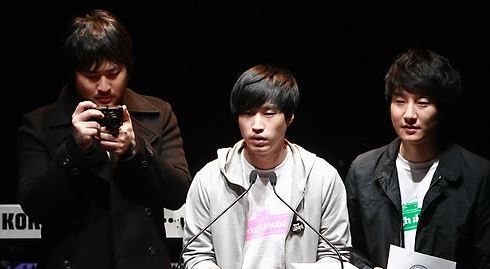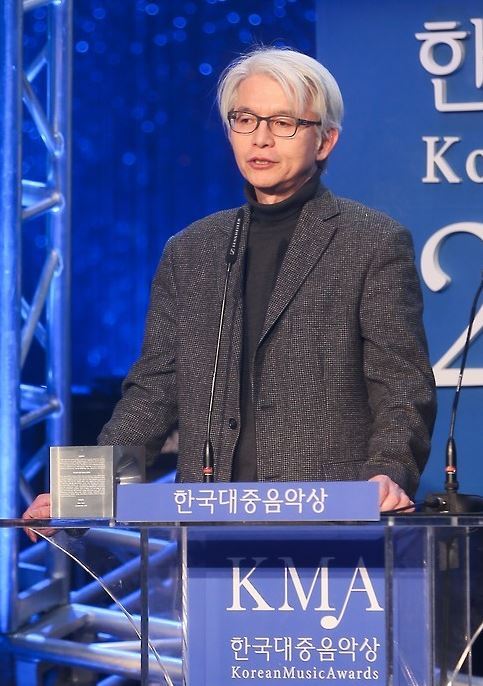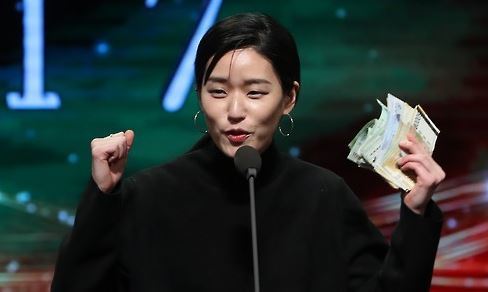K-pop's pundit awards hope to 'comfort' independent creativity
By YonhapPublished : Jan. 18, 2018 - 10:28
As K-pop exploded into a multibillion-dollar global business over the years, music awards celebrating the industry have also grown increasingly lavish and extravagant. Last year's Mnet Asian Music Awards was staged in three countries -- Vietnam, Japan and China -- in a course of a week, highlighted by over-the-top production and performances of mega stars, such as BTS, EXO and TWICE.
But among today's handful of established awards in South Korea, the Korean Music Awards stands out for being the smallest yet arguably the biggest in recognition among experts. KMA's selection committee will announce this year's award nominees on Feb. 6 and hold its 15th yearly award show on Feb. 28.
KMA was first formed in 2004 by a group of music critics, reporters, radio producers and cultural scholars as an alternative to big awards run by the country's three major TV networks -- KBS, MBC and SBS -- whose fairness had been called into question over many years. An open secret within the TV and music business then was of networks giving preferential treatment to stars who made frequent appearances on their programs.
Growing awareness of such allegations prompted broadcasters to discontinue the awards all together. The networks still produce their year-end K-pop gala shows in late December but use terms, such as "festival," and exclude competitive elements.
Most of today's awards, such as those by streaming companies Melon, Soribada and music sales tracker Gaon, rely mostly on data -- factoring physical and digital sales, streaming and online popularity votes. They're considered much more transparent than those of the big three broadcasters in the past, but fairness still is often disputed, as results, even with the same set of data, can vary depending on how criteria are established.

KMA distinguishes itself by openly ditching the sales-based evaluation methodology and relying purely on recommendations from its committee of experts, who range from music reporters, columnists and radio show producers to professors of music and culture.
Chaired by Kim Chang-nam, president of the Korean Association for the Study of Popular Music and a media professor at Sungkonghoe University, the committee is split into nine genres -- rock, modern rock, metal & hardcore, folk, jazz & crossover, rap & hip-hop, R&B & soul, pop and dance & electronic -- and is responsible for producing nominee lists of five songs and albums in each categories. Winners are later decided by general committee votes.
Though sometimes referred to as the "Korean Grammys," KMA is more in the vein of Britain's Critics' Choice award, given that members of the press and the critique community are part of the voting committee. Votes for the US Grammy Awards are exclusive to members of the National Academy of Recording Arts and Sciences.
"There is a debate within the committee on whether to include engineers and other experts directly involved in the industry. But considering how the scene is relatively small, there tends to be a risk (of conflict of interest)," said Kim, who is also a founding member of the legendary '80s folk group "People Who Seek Music."
Unlike other shows that end up praising mostly top-selling acts, KMA, for the most part, has offered equal opportunities to a wide spectrum of artists: from the biggest global K-pop heavyweights to the most obscure-yet-dark horse independent acts.
In 2013, Psy won Artist of the Year and Song of the Year for his worldwide sensation "Gangnam Style," while psychedelic rock group Seoul Electric Band won both Artist of the Year and Album of the Year in 2010. Last year, 2016's breakout folk duo Bolbbalgan4 won Song of the Year for "Galaxy," while Jo Dong-jin, a modern Korean folk pioneer who passed away last August, won Album of the Year for his swan song record "As a Tree."
That's not to say KMA has been free from controversies. As its evaluation and nomination process fundamentally lacks a quantitative component, it has been ridiculed at times, even by some musicians, of being too snobbish or at the mercy of a small pool of music nerds. The fact that lesser-known indie acts have frequently trumped more popular or seasoned artists hasn't helped resolve this perception problem either.
"The idea is to recognize music for purely artistic merit, regardless of commercial aspects. Speaking of objectivity, the selected committee members do try to actively persuade each other in reaching relative middle grounds in decisions," Kim explained. The awards did run an online voting category for several years but was discarded in 2016 after being relegated into massive attrition wars by fans of major idol acts.

Kim Youngdae, a Korean music critic and a KMA committee member based in the United States, noted that music market trends, such as sales, can always be factored in through qualitative evaluations, as seen in cases of Psy and EXO in the past.
"For the pop genre category, we deliberate on a lot of cutting-edge K-pop music. So albums or songs that create public buzz do tend to draw particular interest (among committee members)," Kim said. "That doesn't mean that it necessarily leads to higher evaluations, but it could be said there is an advantage," noted Kim, who is based in Seattle.
Although regarded in high respect among industry experts, KMA's scale is noticeably smaller compared with awards, such as MAMA, the Golden Disk Awards and the Melon Music Awards. Financial backers of the event have also changed frequently and while the culture ministry partially subsidized the project in its early years, state funding has discontinued since 2009, the second year of President Lee Myung-bak's term, without explanation.
Last year, KMA also famously ended up highlighting the financial troubles that many independent musicians become subject to. During her acceptance speech after winning the Best Folk Song award last year, singer-songwriter Lee Lang made headlines by selling her trophy for 500,000 won ($467) in an offhand auction.
"My income in January was 420,000 won not just from music sales but the total. Thankfully, I made 960,000 won in February," Lee said at the start of her acceptance speech. "It would have been great if there was some prize money to this award, but it is not the case. So, I think I'll have to sell this trophy."
Lee Ji-sun, director of the KMA secretariat, noted that part of the awards' vision is to "comfort" independent music and artists, such as Lee, by introducing their works to the world through the awards.
"Our goal is clear in that, we strive to shed light on hard-made music by borrowing the eyes of experts," Lee said. "(For independent musicians), we hopefully can comfort them by recognizing excellent work and motivate them to pursue more ambitious projects." (Yonhap)









![[Graphic News] More Koreans say they plan long-distance trips this year](http://res.heraldm.com/phpwas/restmb_idxmake.php?idx=644&simg=/content/image/2024/04/17/20240417050828_0.gif&u=)
![[KH Explains] Hyundai's full hybrid edge to pay off amid slow transition to pure EVs](http://res.heraldm.com/phpwas/restmb_idxmake.php?idx=644&simg=/content/image/2024/04/18/20240418050645_0.jpg&u=20240419100350)






![[From the Scene] Monks, Buddhists hail return of remains of Buddhas](http://res.heraldm.com/phpwas/restmb_idxmake.php?idx=652&simg=/content/image/2024/04/19/20240419050617_0.jpg&u=20240419175937)

![[KH Explains] Hyundai's full hybrid edge to pay off amid slow transition to pure EVs](http://res.heraldm.com/phpwas/restmb_idxmake.php?idx=652&simg=/content/image/2024/04/18/20240418050645_0.jpg&u=20240419100350)

![[Today’s K-pop] Illit drops debut single remix](http://res.heraldm.com/phpwas/restmb_idxmake.php?idx=642&simg=/content/image/2024/04/19/20240419050612_0.jpg&u=)